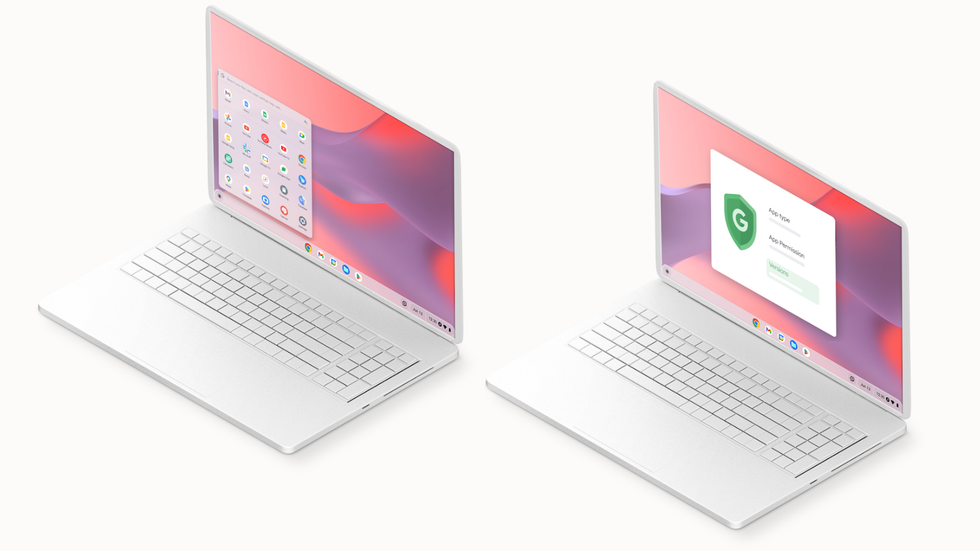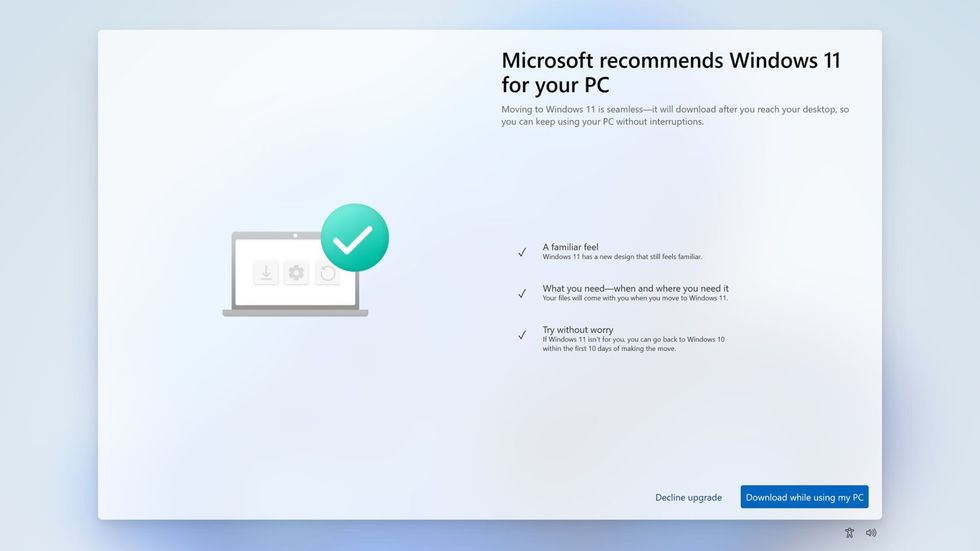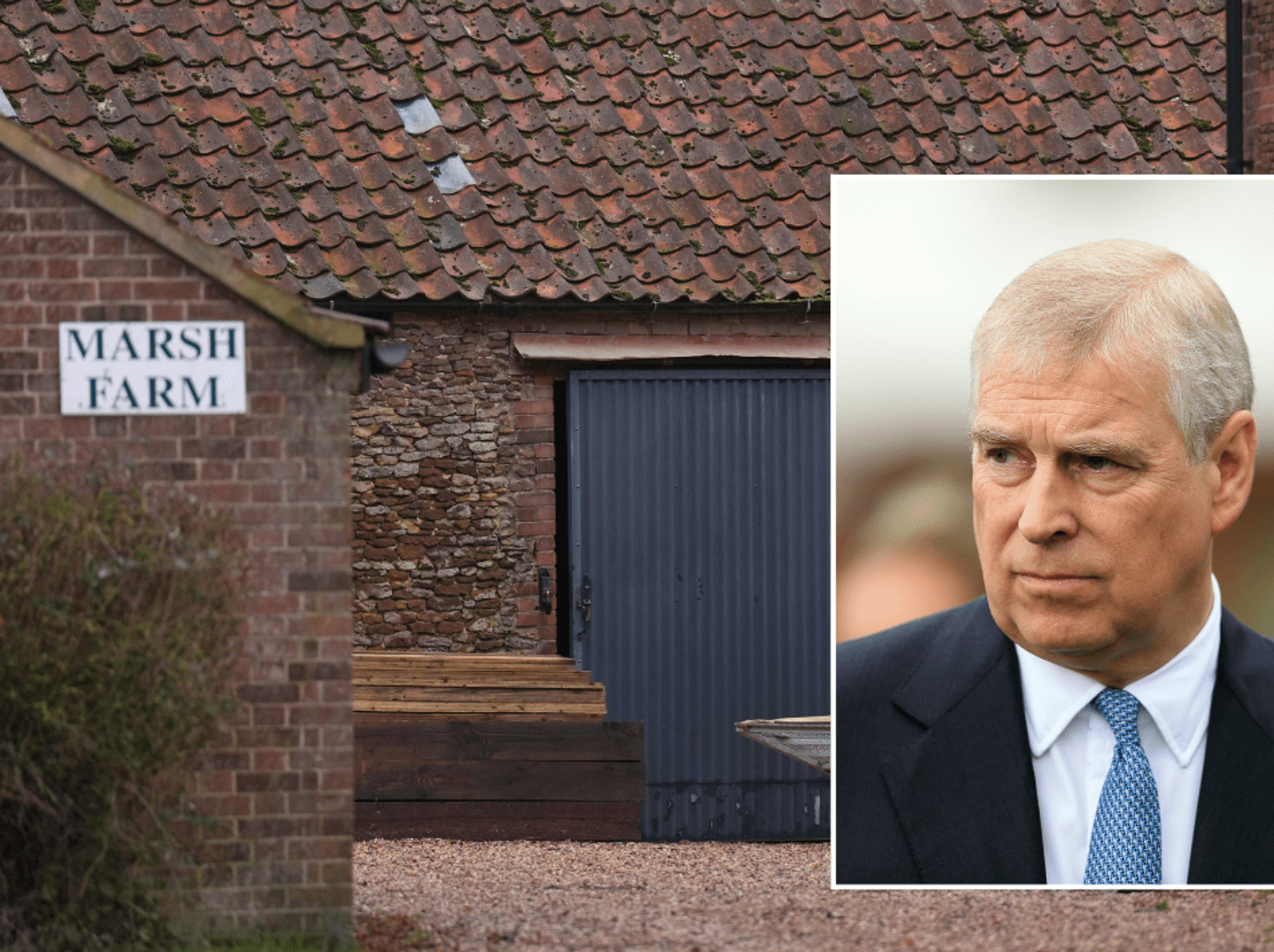Windows 10 users who want to avoid paying new charges to Microsoft given lifeline by Google

Google's ChromeOS Flex is a lightweight operating system that'll be immediately familiar to anyone who has used a Chromebook before, and it can be installed on many older Windows and macOS devices
|GOOGLE PRESS OFFICE

If your machine can't be upgraded to Windows 11, Google is offering a free alternative
- Microsoft will drop support for Windows 10 in October 2025
- It'll no longer fix security flaws free of charge, leaving millions vulnerable to hackers
- For an annual subscription fee, Microsoft will patch all critical bugs
- This is known as the Extended Security Updates (ESU) scheme
- System requirements block millions of Windows 10 devices from upgrading
- Google's alternative ChromeOS will work with these PCs and provide security fixes
Don't Miss
Most Read
Latest
Google has offered a helping hand to Windows 10 users who can’t update to Windows 11 due to the strict system requirements and don’t want to pay a fee to Microsoft for security updates. The Californian firm will let PC owners replace Windows with its ChromeOS Flex operating system.
This software, based on Google’s popular Chrome web browser, is very similar to what you’ll find powering Chromebooks. Its system requirements aren’t anywhere close to as stringent as Windows 11, so those who would otherwise be stranded on Windows 10 can make the switch.
Google isn’t just pitching its ChromeOS Flex as a solution for individuals — but believes it could be a lifeline for businesses faced with the prospect of upgrading hundreds or thousands of machines.
ChromeOS Flex could extend the lifespan of your existing PC hardware, preventing electronic waste.

Google says that its ChromeOS Flex software will keep devices unable to upgrade to Windows 11 protected with security updates and fixes
|Microsoft’s decision to end support for Windows 10 next year could result in 240 million PCs being sent to landfills, a report from Canalys Research warned back in January.
Naveen Viswanatha, who serves as ChromeOS Head of Product, Commercial, wrote in a recent blog post: “With ChromeOS Flex, businesses can install a new, auto-updating operating system on their existing fleet of Windows devices. This modernizes devices, extending their lifespan and keeping them out of landfills, reducing their attack surface, and saving on hardware refresh costs.”
ChromeOS Flex is designed to run on hardware that was originally designed for Windows and macOS operating systems. Unlike Chromebooks, that means there’s no dedicated Google security chip, removing a few features.
You also won’t be able to install Android apps on Google ChromeOS Flex ― as a result, there's no dedicated Google Play Store included with this version of the operating system either. You also won't be able to run Windows virtual machines with Parallels Desktop on ChromeOS Flex.
But if you can live without those specific features, your current Windows PC will continue to receive the latest security updates ― keeping you safe from malware, phishing and scam campaigns.
“It’s estimated that cyber crimes will cost $10.5 trillion annually by 2025,” Google’s Naveen Viswanatha writes. “How are you planning to protect your business from this growing threat?
"Traditionally, upgrading to the latest available operating system has been a viable way to reduce the chance of an attack, but with hundreds of millions of Windows 10 devices losing support soon because they are ineligible for the newest version of Windows, finding a way to keep these PCs secure and sustainable should be a top priority.”
Microsoft has confirmed that it will end support for Windows 10 in October 2025.
From that date onwards, Microsoft will no longer release new features, fixes for bugs and compatibility problems, and crucially, no emergency patches for security flaws. That means, if there’s a vulnerability discovered in the operating system, it’s there forever.
While that deadline won’t have any bearing on the performance of your Windows 10-powered PC, it does that continuing to use your computer will carry huge risks.
LATEST DEVELOPMENTS
Windows 10 remains immensely popular – with some estimates suggesting as many as three-quarters of the 1.4 billion Windows PCs worldwide are still powered by the operating system, which was available as a free upgrade to millions when it launched. Microsoft announced a plan to provide security updates for Windows 10 devices until October 2028 for an undisclosed annual price.
Dubbed the Extended Security Updates (ESU) scheme, previous offerings from Microsoft have ranged between £10 and £159, depending on whether you’re using the Home Edition or Pro Edition of the operating system. The cost increases with each year after the end of support deadline.

With the latest update to WIndows 10, Microsoft takes over your screen with three separate pages to list the benefits of upgrading to Windows 11 instead ― ahead of the end of support deadline
| MICROSOFT | WINDOWS LATESTIf the pricing structure for Extended Security Updates (ESU) on Windows 10 mirrors previous trends, switching to newer PCs ― with the latest version of the Windows operating system preinstalled ― could be more cost-effective, increasing the number of older PCs heading to the scrapheap, Canalys Research analysis showed.
ChromeOS Flex is available now at no cost. Google says most Windows 10 PCs should be up and running with the Chromebook-like software within five minutes.










